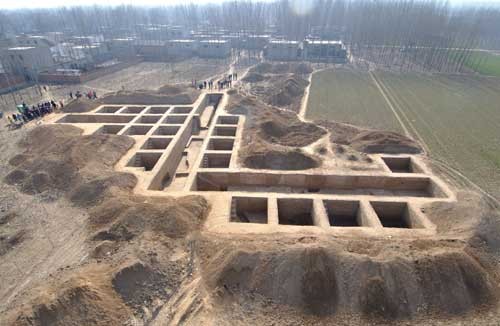Archeologists from Henan Provincial Institute of Cultural Relics and Archeology (HPICA) have unearthed several historical relics in Henan Province.
The team excavated ancient items like bronze wares and chimes as well as different kinds of tombs.
Recently, a bear skeleton was also discovered in a cultural relic site in the town of Taohe in Nanyang City. HPICA archeologists estimated that the bear was buried from anywhere between the 11th century to 771 B.C. This discovery may reveal that ancient Chinese people tamed bears and sacrificed them at least 2,800 years ago.
The bear's skull and teeth were analyzed by HPICA. Hou Yanfeng from the institute said that it was a black male bear; its left leg was 29 millimeters shorter than the other, and it died when it was five years old.
Further analysis of the bones suggested that the bear was tamed and used as offering to the ancestors. The bear probably suffered the fracture as a cub, which made it easy for the ancient people to capture it.
Hou said that the bones were found in the birthplace of Chu, modern-day Hubei and Hunan in Henan Province.
"Chu people bore the ancestral name of Xiong, or Bear, so it is very likely that bears were tamed and raised for sacrificial use at that time," Hou added.
Jiaozou City in Henan has many historical relics because of its importance in the Shang and Zhou dynasties of ancient China. Archeologists are excavating, relocating and protecting the relics, which are located amid a water-diversion project. The team from HPICA started the operation in 2003.
The Henan Provincial Museum currently houses 120,000 relics, of which over 40,000 are tagged rare.



























